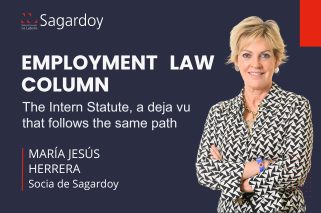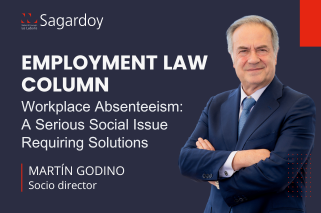The Royal Decree-Law 5/2023 of June 28, which transposes, among other things, Directive 1158/2019 of June 20, 2019, on the reconciliation of family life and professional life for parents and caregivers, has revitalized the social and legal debate on reconciliation and provided workers with a powerful set of measures to make it a reality.
Companies appear to have received these new measures with a mixture of concern, misunderstanding, and unease. Only some, more attuned to the new winds coming from Europe and the demands of new generations, have understood the revolutionary potential of the reconciliation debate. They are beginning to take on the challenge of addressing it from the necessary panoramic perspective that increasingly characterizes matters related to human resources management.
At the outset, it is important to clarify a common misunderstanding regarding reconciliation rights. Reconciliation is no longer just about achieving a balance between family and professional life for parents and caregivers; it now also entails advancing in the shared responsibility for caring for family members.
What is now relevant is the reality of demographic decline, which must be reversed, and an aging population across Europe, generating a need for family care that clearly impacts people’s working lives, especially women workers. The answer to this is a firm commitment to responsible reconciliation.
However, as we mentioned, it would be a mistake to confine the issue of reconciliation exclusively to the debate of shared responsibility and family protection. While this is the emphasis placed in the European regulation on reconciliation and, by extension, in the transposition into Spanish law, the new generations entering the labor market repeatedly remind us that reconciliation also involves personal life, not just family life.
We do not have the time or space to engage in a more philosophical or sociological debate on how the concept of reconciliation has been subtly redefined, eliminating modest attempts to include not only family life but also personal life (as was reflected in the previous version of Article 34.8 of the Workers’ Statute before the current consolidated text).
The reality is that business organizations, especially recruitment departments, repeatedly encounter candidates who are reluctant to accept long working hours, rigid schedules, or full on-site presence. The right to reconciliation is on the lips of most of these candidates, and talent retention now heavily depends on the company’s response to these requests.
Reconciliation means bringing together, associating, or making compatible. The boundaries between work time and personal time have become more fluid, which is not necessarily a bad thing if an agreement is reached that does not harm productivity, is not illegal or abusive, and allows for full leisure time.
The reconciliation of personal and work life would have a different but much stronger constitutional and legal foundation. In this sense, the dignity of the person, which prevents them from being seen as a mere economic resource, as well as the free development of personality, are the foundation of the political order and social peace (Article 10 of the Spanish Constitution). Public authorities must remove obstacles that prevent or hinder the fulfillment of this freedom, facilitating the participation of all citizens in political, economic, cultural, and social life (Article 9.2 of the Spanish Constitution).
In my view, this means that an individual could invoke a quality time for full participation in these other aspects of life (political, economic, cultural, and social), and public authorities (including the courts) must remove the obstacles that prevent it, in order to guarantee a living and real democracy in our society.
We are thus faced with a new, complex reality in which forces of various origins converge, all equally important, and which will once again demand a significant adaptive effort from businesses. On one hand, there is the legal requirement to properly manage requests for the reconciliation of family and work life, without losing sight of the political-legislative goal of shared responsibility. On the other hand, there is the generational and, in my view, constitutional demand to not arbitrarily disregard requests for personal life reconciliation, as long as they are reasonable and do not harm business productivity, the defense of which, let us not forget, is also entrusted to the public authorities by constitutional mandate (Article 38 of the Spanish Constitution).



